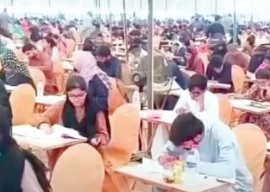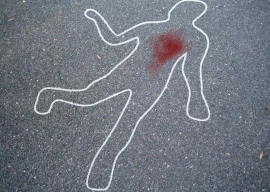
The workshop was organised by Salu in collaboration with the Endowment Fund Trust, Unesco, Higher Education Commission (HEC) Islamabad and the Khairpur district government.
Dr Nafisa Shah, the convener of the workshop, said that the department of culture is working for the conservation of culture of Sindh “due to the political will” of Chief Minister Qaim Ali Shah, who was the chief guest at the occasion.
“Sindh has a unique part [to play in the country’s] heritage and culture. This workshop will pave the way for capacity building and awareness,” she said.
Salu vice-chancellor Professor Dr Nilofer Shaikh presented her paper on the “State of Archaeological Heritage of Sindh”, in which she stated that “the history of the archaeological sites in Sindh is rich, but due to a lack of interest and proper attention, our heritage has been distorted.”
She said that 15 of the “prime archaeological sites in Sindh” are in deplorable condition, adding that the “Amri Sites have been destroyed by the rightbank outfall drain, while the stone and builders mafia have destroyed the Rohri Hills”. Shaikh also appealed to the CM to approve the teaching of archaeology as a subject at universities.
“Sindh is rich in culture and heritage and with the dawn of Islam, it has remained a tolerant society,” said CM Qaim Ali Shah, who claimed that a few “misguided people are disturbing the peace”.
“The role of Sufi saints, such as Shah Abdul Latif Bhittai, Lal Shahbaz Qalandar and Sachal Sarmast, is laudable,” said the CM, adding that the efforts of the president of Pakistan are “significant” for the preservation of culture in Sindh.
“A Sindhi encyclopaedia was published recently while this workshop will also bring new dynamics and set new trends for the promotion of culture and heritage in Sindh,” he said.
The culture of Sindh is older than that of Egypt and other civilisations, said Sassui Palijo, adding that “the people of our province believe in love, peace and unity.”
After the 18th constitutional amendment, the department of culture will be transferred from the federal government to the provincial government and “we will make serious efforts to preserve culture and heritage”, she said.
World Heritage Centre (WHC) Paris programme specialist Alexandra Zu Sayn-Wittgenstein also gave a presentation on world heritage policies, support and initiatives for developing countries for the conservation of heritage sites and properties.
Architect and conservationist Yasmeen Lari spoke on the Cultural Heritage Preservation Act 1994 and identified loopholes in it. She also suggested a special fund be put in place for the maintenance of historic sites. Jahangir Siddiqui said that “Sindh has suffered a lot due to inadequate funds and a lack of interest.”
The departments of culture and antiquities were not represented in the first session of the workshop, Abdul Hamid Akhund lamented as he spoke of the “apathy of the government officials and the advisory committee towards such an important issue”.
Dr Fazal Dad Kakar also gave a presentation on the conservation of monuments and sites maintained by the Federal Department of Archaeology and Museums while Abdul Fateh Daudpoto`s presentation on the current state of Lal Shahbaz Qalandar`s tomb generated a heated discussion.
Wajahat Ali`s presentation on the case of Shigar Fort (Baltistan) was followed by a brief presentation from two representatives of the antiquities department on the rehabilitation works they had undertaken.
Kamil Khan Mumtaz delivered a speech on heritage and its impact on culture while Yasmeen Lari ended the day’s proceedings with a presentation on urban conservation in Pakistan.
Published in The Express Tribune, December 7th, 2010.
1730959638-0/trump-(19)1730959638-0-405x300.webp)
















COMMENTS
Comments are moderated and generally will be posted if they are on-topic and not abusive.
For more information, please see our Comments FAQ